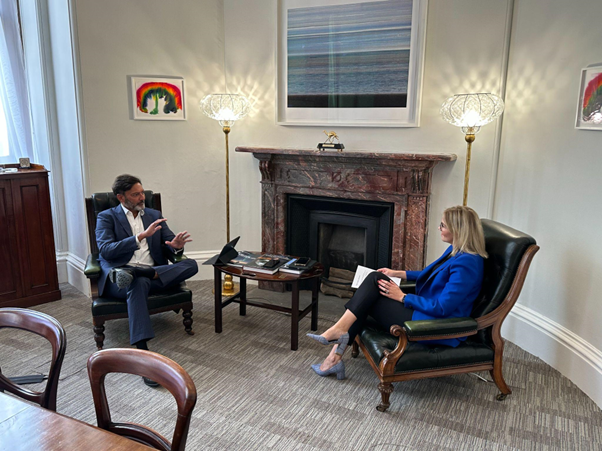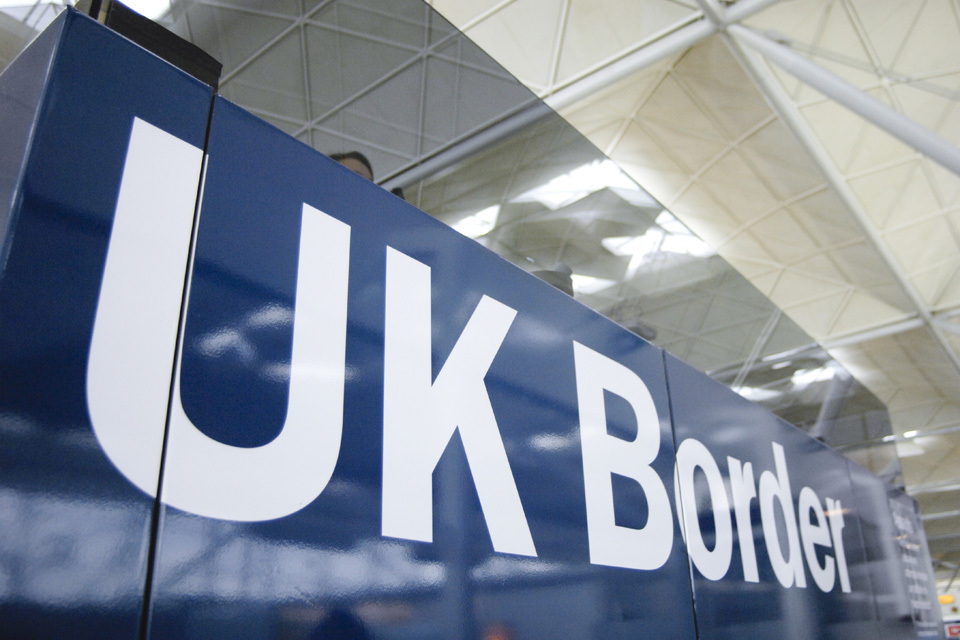Home Office believes use of new technology will mean people can enter the UK without going through a gate or being checked by an official
Credit: Crown Copyright/Open Government Licence v3.0
The government has unveiled plans to deliver a “contactless digital border” through which people will be able to enter the UK without needing to pass through an electronic gate or undergo checks by border officials.
The Home Office has announced that it will shortly begin testing systems that would allow those arriving in the UK to complete a “pre-screening” process. Having done so, new technology deployed at air and seaports it could then enable entirely automated checks of passengers, removing the need for documents to be screened by eGates or checked by Border Force personnel, the department believes. Operational pilots are scheduled to begin in 2024.
The plan to trial new technology forms part of a new Legal Migration and Border Control Strategy unveiled last week by home secretary Priti Patel.
Related content
- Physical EU border checks set to be delayed again – but PM suggests new tech could render them unnecessary
- Home Office admits some immigration data ‘only held on paper’
- Digital services central to plans for post-Brexit border
“This [strategy] includes ensuring we have a border that is fit for the 21st century which allows travellers to get a visa and pass through the border easily, while maintaining national security,” she said. “I am also committed to ensuring our fantastic Border Force are given access to the most up to date automation technologies so they can use their specialised skills on protecting our border from those who seek to harm the UK.”
Alongside the plans to experiment with entirely contactless border entry, the Home Office also announced it will also trial an extension of the use of electronic passport gates, by lowering their minimum age limit from 12 to 10.
As part of the government’s New Plan for Immigration, published last year, the department also continues working on the delivery of online “customer accounts” for travellers, and electronic travel authorisations to replace the existing system of visas.



